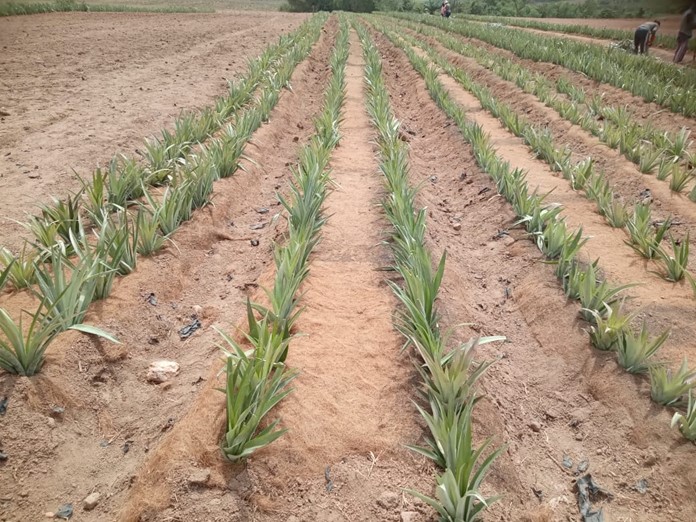A team of professors from Northampton University, England, have commenced first-of-its-kind research into finding alternative mulch solutions to replace the use of plastics in Ghana.
The initiative is under a programme dubbed Fresh Produce Impact Hub (FRESHPPACT) and is targeted at helping to address plastic pollution, especially in the area of agricultural production.
The alternative mulching materials understudy are bio-based and made from materials such as by-products of coconut (coconut husks) and other agricultural waste that are organic and harmless for human consumption.
If successful, this solution could provide a path for Ghanaian farmers to adopt more sustainable farming practices, thereby significantly contributing to the nation’s soil fertility and food security.
Associate Professor in International Sustainable Development Law at the University of Northampton, Dr. Ebenezer Laryea, interacting with the media during a project site visit, mentioned that the rate at which microplastics are finding their way into the human body is alarming and the use of plastics as mulching materials has been identified as one of the causes, hence the need to tackle it urgently with a sustainable solution.
“The solution involves the undertaking of a comprehensive trial aimed at conducting a comparative research experiment of various innovative and sustainable mulching solutions to assess their suitability to serve as an alternative to plastic agricultural mulch.
“What we hope to achieve in the end is an assessment of how the mulching alternatives compare in their ability to retain moisture, suppress weeds and support high yield as well as assess the individual capability and potential of the mulching alternatives as innovative and sustainable farming practices which can be adopted as alternatives to plastic agricultural mulch,” he said.
Key factors to consider in project evaluation include overall cost analysis, ease of production, implementation and removal, as well as fruit yield and quality traits.
It is estimated that 840,000 tons of plastic waste is generated in Ghana annually, with limited recycling facilities and initiatives to tackle its safe disposal. Unfortunately, the few available recycling facilities are all privately owned initiatives with low processing capacity.
The government’s efforts like the attempted ban on single-use plastic in 2015 did not yield the desired results, hence substantial challenges still exist, hence the need to find innovative ways to tackle the root cause of some of these problems.

Senior Lecturer, Sustainable Business, Northampton University, Dr. Seyi Omolose, on his part emphasised that as societies seek to eliminate plastics, it is important to give people alternatives that would provide similar or better solutions.
He added that to ensure the developed solution is best suited for farmers, this experiment will compare four different means testing solutions – plastic mulch, no mulch, a BDM mulch by CSIR South Africa, and coconut mulch.
Foundation & Corporate Affairs Manager, Blue Skies, Alister Djimatey, highlighted that using these alternative mulches also creates jobs and economic empowerment for the youth.
He added that Blue Skies is a responsible company that is committed to the sustainability of the environment and the well-being of its communities, hence the decision to partner with this initiative to ensure environmentally friendly solutions that protect lives and livelihoods.
The FRESHPACT project is being funded by the UK Foreign, Commonwealth, and Development Office (FCDO) and is implemented in partnership with the United Nations Conference on Trade and Development (UNCTAD).










